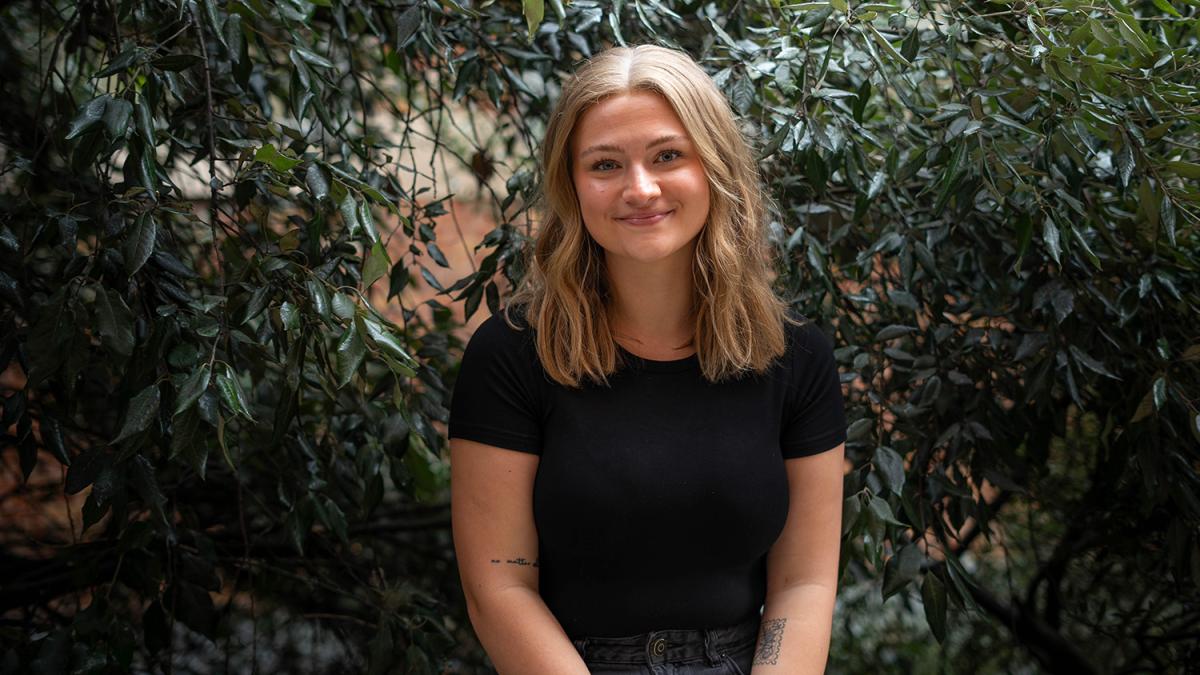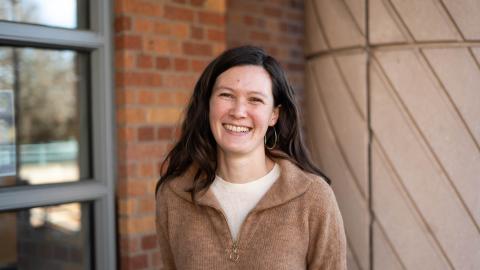Hannah McKinley
BS, Environmental Health
Hometown
Snohomish, WA
Future plans
Pursuing an MPH in DEOHS and an MPA in the UW Evans School.
“I feel very lucky to have found a place to explore so many of my academic interests.”
- Hannah McKinley
Hannah McKinley hails from just 45 minutes north of Seattle. In the fall of 2020, she decided to enroll as an undergraduate at the UW in part because of the pandemic, knowing she’d likely be attending many of her freshman-year classes from home. But figuring out how to connect with her college peers and professors was a challenge.
“With the first two years of college being the COVID years, I was really struggling to feel like I belonged somewhere or that I was fitting in, especially because UW is such a huge school,” McKinley said.
Eventually, however, she found a sense of community in the UW Department of Environmental & Occupational Health Sciences (DEOHS), where this year, McKinley was chosen as the Outstanding Undergraduate Student.
“I feel very lucky to have found a place to explore so many of my academic interests,” McKinley said. “This department and the community, with both the staff and students, have provided me so many opportunities.”
A field at an important intersection
In her freshman year, two online classes ended up being formative for McKinley, who’s graduating this spring with a BS in Environmental Health and a minor in Public Policy.
Those courses focused on connections between food and the brain, and on environmental health and media. Although she originally planned to major in neuroscience, McKinley was drawn to environmental health.

“You can study human physiology on its own and there’s a lot to learn there, but there are so many environmental factors that influence us every day,” she said. “And the same is true the other way around: our environment is inhabited and impacted by us as humans. Environmental health is an up-and-coming field, and it struck me as a really cool intersection to study these interactions between the environment and ourselves.”
McKinley has pursued several research opportunities during her undergraduate career in addition to the internship required by her major.
“It's important that undergraduate students understand that they too can contribute significantly to a research project, it's not just up to the master’s or PhD-level students, and Hannah came into our research lab embracing and illustrating that beautifully,” said Tania Busch Isaksen, DEOHS teaching professor and the undergraduate program coordinator. She also oversaw McKinley’s research in the Collaborative on Extreme Event Resilience (CEER), which Isaksen co-directs.
Room to explore
McKinley worked with Isaksen on the CEER lab’s extreme heat and health project. She also interned at Public Health – Seattle & King County, contributing to a pilot study of the efficacy of indoor air filtration as part of a project on wildfire smoke intervention.

And she’s been working as a research assistant since her junior year in the UW Food Systems, Nutrition and Health program to study environmental priorities around meat production. In between all those projects, she embarked on a study abroad program in Italy last summer, following her interest in sustainable food practices.
“What has really impressed me about Hannah is her confidence, excellent communication skills and willingness to ask critical questions of others in the CEER lab—often leading to the improvement or refinement of what our group is working on,” Isaksen said.
Combining public health research and policy
After graduation, McKinley will stay on in DEOHS as a graduate student, concurrently working toward an MPH and a master’s in public administration (MPA) from the UW Evans School of Public Policy and Governance.
She’s interested in combining public health research and policy in her career after graduate school, and is planning to use her time in the master’s programs to refine her career plans.
“Every professor in this department is so accessible and so friendly,” she said, “It’s really amazing to think how my college experience has completely flipped from the first two years to these last two.”




